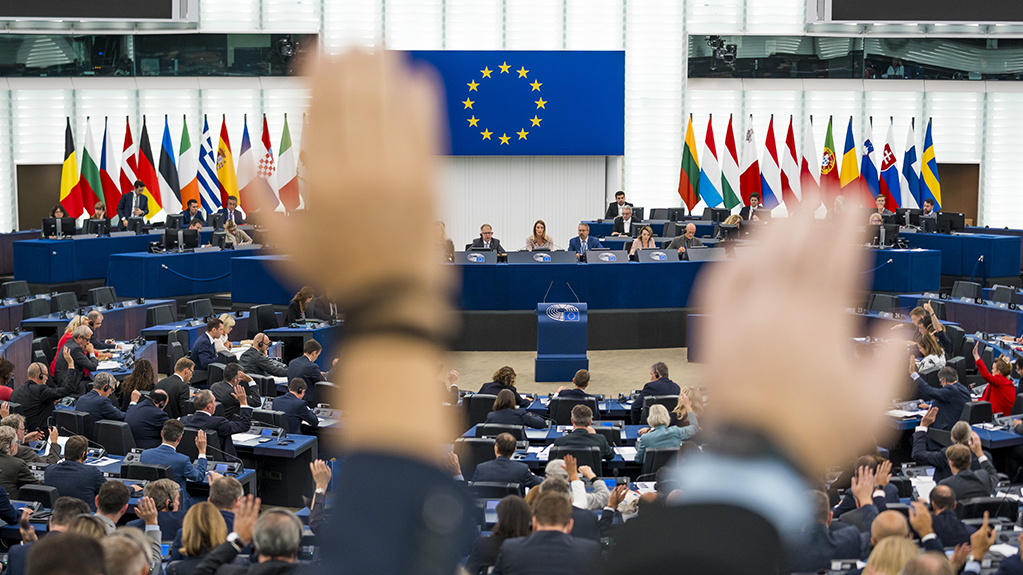The European Parliament, in a resolution adopted today, October 9, calls on the European Union and its member states to impose personal sanctions on those responsible for undermining democracy in Georgia, including the honorary chairman of Georgian Dream, Bidzina Ivanishvili. A total of 495 members of the European Parliament supported the resolution, while 73 voted against it and 86 abstained.
News
As per a statement published by the press service of the European Parliament, the MEPs assert that the democratic backsliding in Georgia is effectively hindering the country's integration with the European Union. In the resolution, they emphasize that the ruling party, Georgian Dream, is pursuing an increasingly authoritarian agenda, particularly regarding media freedom and LGBTQ+ rights, despite Georgia being granted EU candidate status in December 2023.
The resolution criticizes the laws On Transparency of Foreign Influence and On Family Values and Protection of Minors," as well as the amendments made to the election code. According to the MEPs, these laws violate freedom of expression, censor the media, impose restrictions on critical voices from civil society and the non-governmental sector, and discriminate against vulnerable populations. The MEPs also make it clear that if these laws are not repealed, there will be no progress in Georgia's relations with the European Union.
The MEPs are calling for an investigation into police brutality against peaceful protesters who took to the streets in the spring of 2024 to oppose the Russian Law passed by Georgian Dream.
In addition, the MEPs express concern about statements made by Georgian government representatives and political leaders, as well as the atmosphere of hatred and intimidation created in the country by the government's attacks on political pluralism. The resolution refers to Bidzina Ivanishvili as an oligarch and condemns his threats, along with those of leading government figures, to ban opposition parties.
In light of the continuous deterioration of democracy in Georgia, the European Parliament demands that all EU funding received by the Georgian government be frozen until the undemocratic laws are repealed. The MEPs claim that any future funding of the Georgian government can only be granted under strict conditions.
The resolution mentions that on December 14 and 15, 2023, the European Council granted Georgia the status of a candidate country, with the understanding that the steps outlined in the European Commission's recommendation of November 8, 2023, would be implemented. According to the MEPs, the current authoritarian trajectory of the Georgian government clearly contradicts this ambition and has effectively halted Georgia's integration with the European Union.
The MEPs believe that the upcoming parliamentary elections will be crucial for determining Georgia's future democratic development and geopolitical choices, as well as its ability to make progress with its EU membership candidacy. They call on the Georgian authorities to ensure that elections are conducted according to the highest international standards and to respect the will and free choice of the Georgian people.
With this resolution, the European Parliament calls on the European Commission to evaluate the laws On Transparency of Foreign Influence and On Family Values and Protection of Minors, the abolition of gender quotas, and other changes in electoral legislation. They emphasize the importance of implementing the recommendations of the Venice Commission and the potential impact on Georgia's continuous fulfillment of visa liberalization criteria, particularly the criterion of fundamental rights, which is a crucial component of EU visa liberalization policy.
The authors of the resolution are the European People's Party (PPE), Renew Europe (Renew), Alliance for European Freedom (Verts/ALE), and Progressive Alliance of Socialists and Democrats (S&D), as well as the European Conservatives and Reformists (ECR) groups.















